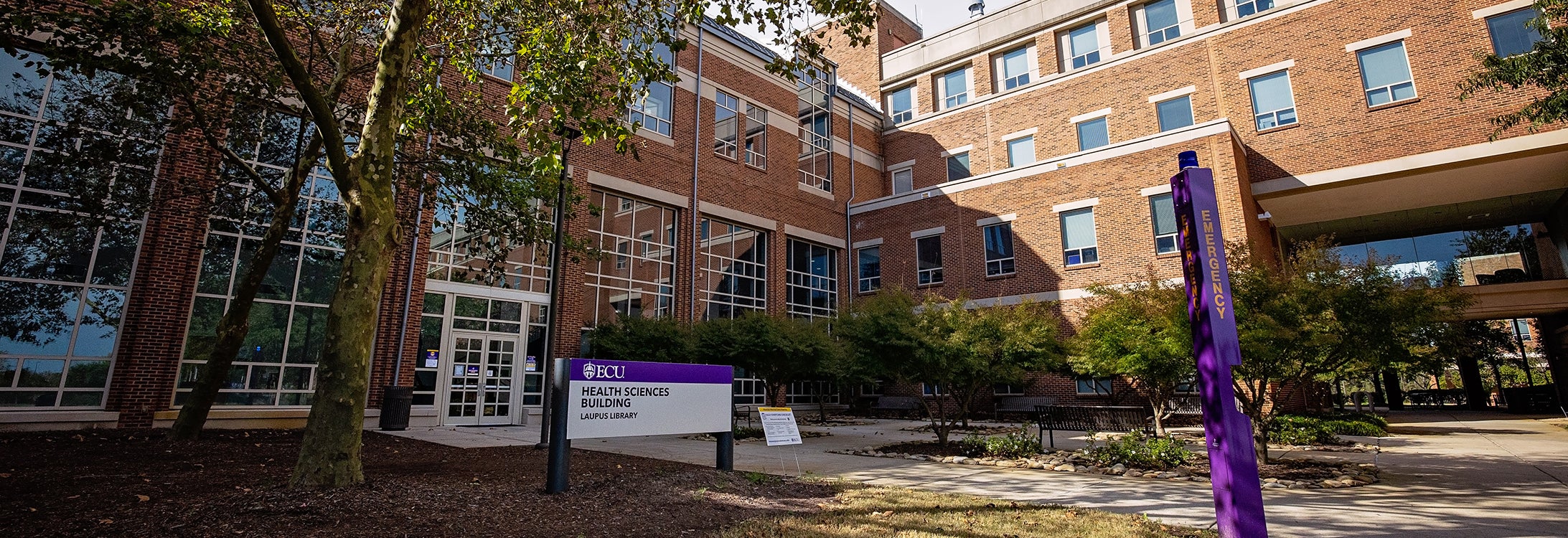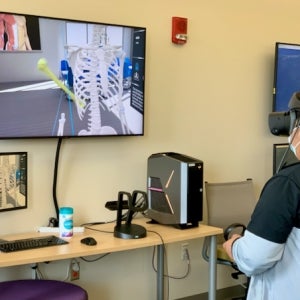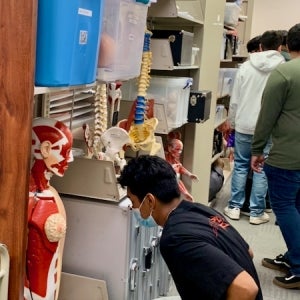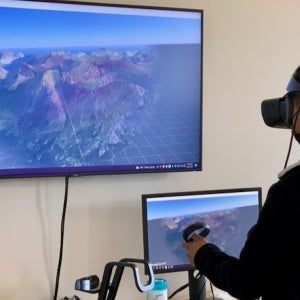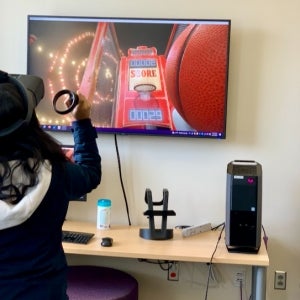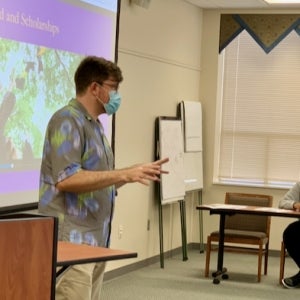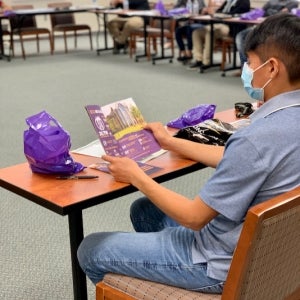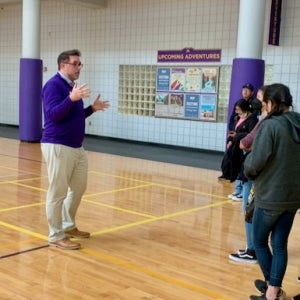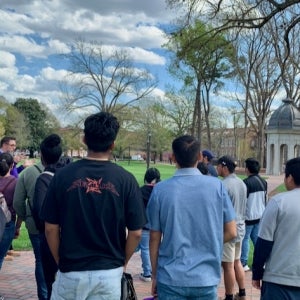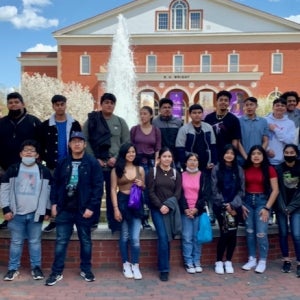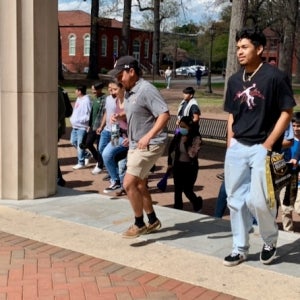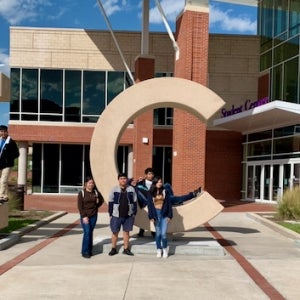Campus visit kicks off National Farmworker Awareness Week
Rafael Vasquez is interested enough in photography that he had his camera either in his hands, clicking buttons, or strapped securely to his chest as he toured East Carolina University with peers. He wanted to capture as many moments as possible while on ECU’s campus for the first time.
“I think they are pretty good,” said Vasquez, a senior at North Johnston High School, after a quick glance at some of the afternoon photos he compiled. “I’m a beginner, so I just take them mostly for fun.”
Vasquez is in his fifth year in the Student Action with Farmworkers Levante Leadership Institute program. In conjunction with NC Field and the Levante Leadership Institute, he was one of 21 students who visited ECU on March 25, also the first day of National Farmworker Awareness Week.
The morning session was based at Laupus Library on ECU’s Health Sciences Campus. Students explored Google Earth and participated in interactive games in the Laupus virtual reality lab. They also had the opportunity to see Laupus’ large collection of anatomical models and engaged in a training on evaluating health information, led by Laupus librarian Jamie Bloss.
In all, the students aimed at improving their overall health literacy skills and understanding of college initiatives and opportunities.
“I’m really proud to be part of ECU’s strong connections with community organizations like Student Action with Farmworkers and NC Field,” said Dr. Joseph Lee, Associate Dean for Research in the ECU College of Health and Human Performance. “I think we have a responsibility to make sure everyone has a chance to see what ECU has to offer, and it was nice that this visit coincided with National Farmworker Awareness Week. I also got to see ECU from students’ eyes, and it was inspiring to see the excitement about what ECU has to offer.”
The morning at Laupus Library also included a financial aid presentation and question and answer session. Students took advantage of that situation by asking informed questions about scholarships and application processes.
“At Laupus, we love to showcase our resources and services that we offer like the anatomical model collection – it’s one of the largest in the state of North Carolina – and our VR lab,” Bloss said. “It was an honor to get to show students from SAF and NC Field the library and offer sessions on how to find credible health information online and information on preparing for and paying for a college education. … Our hope is always that they find the tour and information sessions interesting and helpful in preparing to go to college and thinking more critically about information that they interact with online, which is crucial in the global pandemic that we are living through. Many of the students who came and participated in the visit had never been to a college campus before, so it was a lot of fun to get to show them around the Health Sciences Campus.”
Afternoon hours were spent on main campus, beginning with a tour of the Eakin Student Recreation Center. Some students were impressed by the number of basketball courts at the Rec Center, and they were later wowed at the Main Campus Student Center featuring an outdoor large digital display and View Smart Windows that can tent automatically in relation to daylight and temperatures.
The visit was part of a three-year collaboration between Lee, Bloss, Student Action with Farmworkers and other colleagues, designed to address farmworker health disparities through information literacy and resources.
“The tour was my favorite part,” Vasquez said. “It was interesting to get to know the campus and what was there to offer.”
